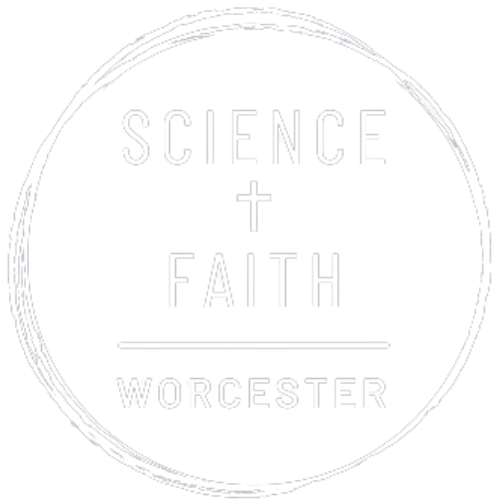GLOBAL PERSPECTIVES ON SCIENCE AND CHRISTIANITY
Dr. Mike Brownnutt
Christianity has a rich diversity of expressions around the world. Similarly, science takes on diverse forms in different times, places, and cultures. It should then be no surprise that – in considering the interaction of science and Christianity – there is a radical diversity of questions that people have, answers that people find acceptable, and opportunities that arise for engagement.
Mike’s talk looked at challenges with the western “lists-based” approach to categorising what should be considered science and what constitutes faith and religion, in a highly interactive discussion. He drew on his experience of teaching during seven years in Hong Kong, to show how he had realised the fallacy embedded in the western model. He helped us see that the list of those things that might be considered unique to science and those things unique to faith are in fact both interlinked and appropriate for both areas. This then could be seen to be associated with ways that western thinking and education have imposed an false interpretation of what we observe and experience. The interactions with Mike continued on after his talk had finished.
Bio: Mike Brownnutt obtained his first Master’s degree (MSci in physics) and his PhD (in experimental quantum mechanics) from Imperial College London, UK. He then worked at the University of Innsbruck for eight years, writing his habilitation on his research there, which developed scalable architectures for trapped-ion quantum computers.
He completed a second Master’s degree (MA in theology from the University of Chester, UK) considering how faith is understood by various parties in discussions about Christianity and science. He spent seven years at the University of Hong Kong, serving as Associate Director of the Faith and Science Collaborative Research Forum, and researching framings for science and religion which do not pre-suppose Modernist assumptions.
He now serves as Course Director of the Faraday Institute in Cambridge. In his spare time, he is working on a PhD (with University of Birmingham) on non-Modern philosophy of science and religion. He also heads Every Nation Campus Academics, a church-based organisation seeking to engage with academics globally.
FEBRUARY 2024
ADA LOVELACE (1815-1852):
THE FIRST COMPUTER PROGRAMMER?
Dr. Kim Stansfield
At the meeting, Kim spoke about an incredible visionary, Ada Lovelace, who more recently has been seen to have had early foresight of the full potential of machine-based computers. This was recognised by her main collaborator, Charles Babbage, who himself created the blueprints of the first mechanical, general computer, the Analytical Engine.
The discussions ranged far and wide, on such issues as areas for development for the UK’s higher education system, where Ada’s view of her strength of seeing poetry in science and mathematics reached far beyond the limitations of a single discipline. We also had significant discussion on the impact of her extraordinary upbringing by her talented mother Isabella Millbanke, a social reformer, an accomplished mathematician and an aristocrat, with a passion for industrial education and help for all sectors of society.
It was also remarked that Ada’s short life of 36 years echoed her father Lord Byron ’s short life.
NOVEMBER 2023
2084: ARTIFICIAL INTELLIGENCE
AND THE FUTURE OF HUMANITY
Prof. John Lennox
In his recently published book “2084: Artificial Intelligence and the future of humanity”, Prof. John Lennox uses easily accessible English to introduce key aspects of Artificial Intelligence and how he believes this impacts the future of humanity. In particular, John investigates the way that his Christian faith helps him understand the questions of where humanity is going, and what it means to be a human being created in the image of God.
As a follow-on to his book, he has produced a series of videos, and we watched the introductory video, which explains core ideas. If you’d like to watch the video, here’s the link.
We stopped the video at various points, to discuss key questions that John Lennox considered, and had some lively discussion, during which intergenerational differences on the positive and negative impact of AI became apparent.
OCTOBER 2023
The Garage Incubator, birthplace of future industry
James Birkett
James Birkett, CEO of manufacturing start-up, Protogen 3D, discussed his insights into the manufacturing opportunities offered by more access to information and technology than ever, much of which has become accessible for people from different backgrounds and social conditions. He also addressed some key lessons for young entrepreneurs in terms of Christian values and behaviours that support constructive business environments.
He also considered how the apprenticeship education model followed by Jesus offers a practical way of building useful skills and approaches for young people. This extended into his view of the Bible being a fully referenceable source of knowledge and wisdom, some of which is echoed in the internet today.
A lively discussion followed his talk.
SEPTEMBER 2023
THE ROAD TO MANAURE AND THE SCHOOL IN THE DESERT:
What it tells us about sustainability
Dr. Kim Stansfield
In April and May 2023, Kim visited Colombia, South America, as part of a European collaboration program on the use of bio-waste materials for sustainable product and energy generation.
During his stay he visited Manaure on the North East coast, where he saw the depth of the sustainability challenges we face and witnessed God’s promises being fulfilled on a daily basis both personally and in a miraculous school in the desert. We heard stories of how he was kept safe through a series of potentially life-threatening situations, such as a near ambush in a remote location. In each situation, God made it clear that he was fulfilling his promise to protect and encourage Kim and his friends and colleagues.
The talk went on to look at how God engages with people with different backgrounds, gifts and skills to transform sustainability in difficult social environments. Kim explored challenging questions that stimulate technological and educational innovation in these communities.
We then had a wide-ranging discussion of ways of tackling the practical blockages to building sustainable communities.











